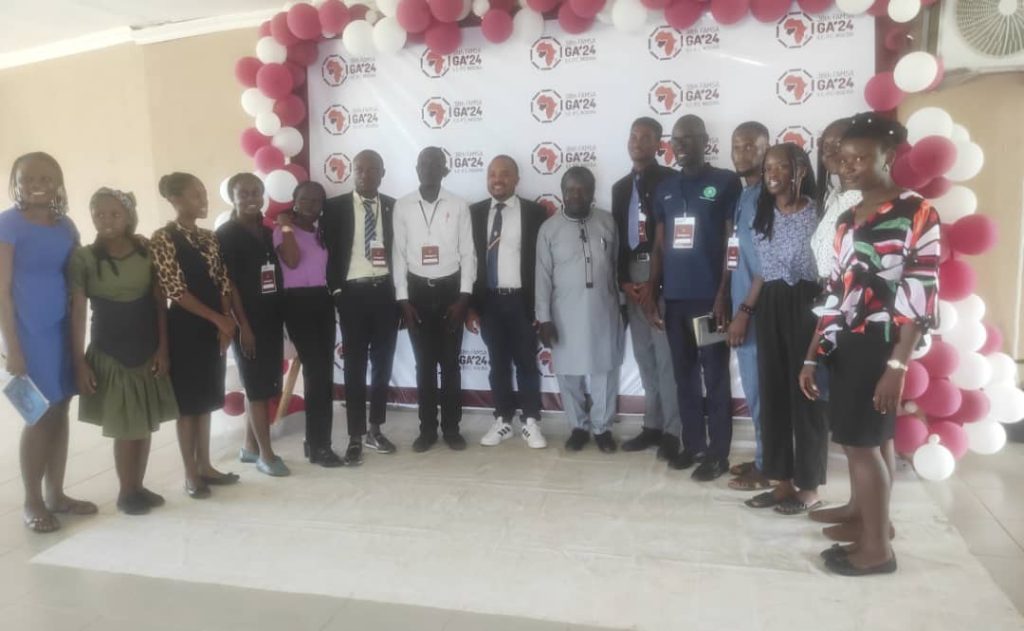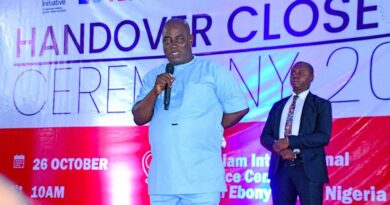At 38th FAMSA General Assembly, Prof Adeboye Adejare,Urges Medical Students To Leverage On Technology
The renowned Professor of Pharmaceutical Sciences, Professor Adeboye Adejare delivered a keynote address at the 38th General Assembly and Scientific Conference of the Federation of African Medical Students’ Associations (FAMSA), which was held at Ọbafẹmi Awolọwọ University, (OAU), Ile-Ife, Osun State, Nigeria, November 4-7.
FAMSA is an independent, non-political association established to foster the spirit of friendship and cooperation amongst African medical students.

Established in 1968, FAMSA is recognized by the African Union (AU) & World Health Organization (WHO) as the official international forum of African medical students.
The FAMSA 2024 research session was held on November 6 at the Clinical Skills Lecture Theater at OAU Teaching Hospital Complex (OAUTHC), with the theme: “Open Science, Responsible Research and Research Education in Africa.”
In his keynote address, Professor Adejare of the Department of Pharmaceutical Sciences, Philadelphia College of Pharmacy, Saint Joseph’s University, USA harped on the need for medical students to strive to be the best, regardless of limitations and encumbrances.
He charged them to do more in the area of self development, saying that the world has become a global village and that medical students engaged in research could attract opportunities from far and near.
He highlighted how open science makes resources available to all people, from those at large academic centers in USA to an amateur in a village in an African country as long as internet access is available.
Professor Adejare noted that a lot of information is available instantly for medical students and at no cost on the internet.
“For example, one of my recent publications was accepted and became available globally within a month (last month), just to illustrate the power of open science. In the past, it would have taken easily a year for a scientist in Africa to get access to such publication and at significant costs.”
With regards to responsible research, Professor Adejare spoke on the need to solve problems, understand the funding agencies and their deliverables and ensure sustainable research as well as the need for intellectual property protection as the economic engine.
He noted that the Nigerian government’s Tertiary Education Trust (TET) fund and the upcoming Grand Challenges Nigeria offer great opportunities to researchers in the country.
Other African countries may have similar programs. Professor Adejare advocated research education in Africa with focus on solving problems, both in Africa and globally.
He noted how drugs used for treating glaucoma, urinary problems and Alzheimer’s disease all originated from the Calabar bean, a plant native to Nigeria.
During the panel discussion session, Professor Adejare challenged medical students to keep keen eyes especially with regards to abnormalities.
He noted how several drugs which were being explored for one disease ended up being approved for another based on side effects observations.
Such observations have also led to drug repurposing, a process where drugs approved for one disease becomes approved for another one based in part on side effects observations.
Professor Adejare noted “it was indeed an honor and pleasure for me to be able to engage with the next generation of health service providers in Africa and suggest some possible options for their consideration.”




